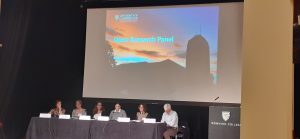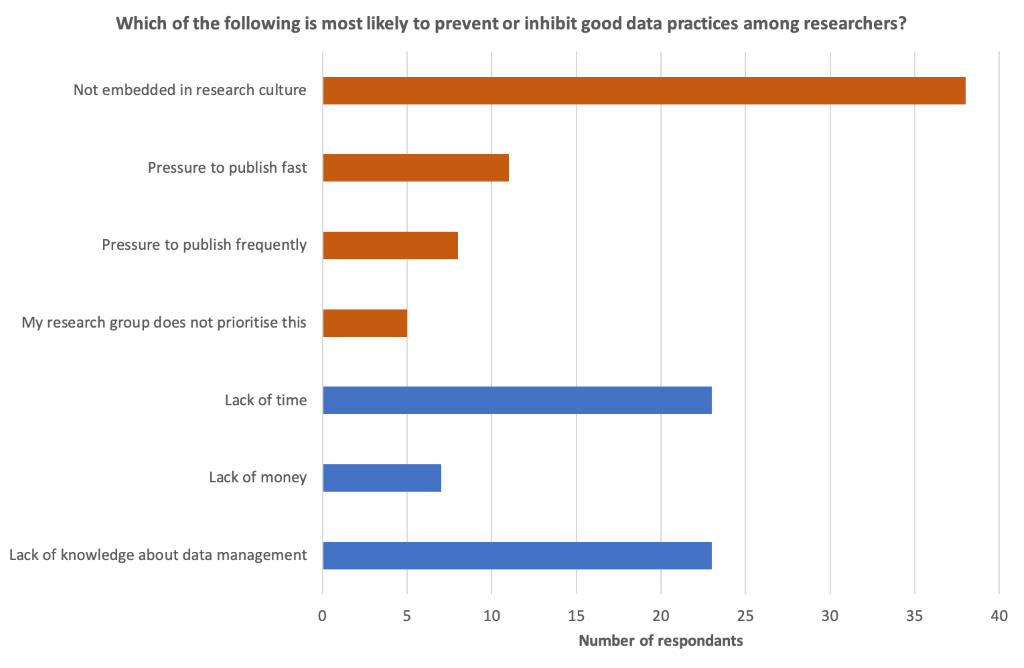To coincide with our first townhall event on the Elsevier negotiations, Professor Stephen Eglen offers his perspective on the University’s future relationship with the publishing industry. Prof. Eglen is Professor of Computational Neuroscience in the Department of Applied Mathematics and Theoretical Physics at the University of Cambridge.
I’m often asked why I single out Elsevier when discussing spurious publishing practices*. The simple reason is that they are the single largest publisher that most institutions deal with. Other legacy publishers adopt similar practices, outlined below, that I disagree with. However, given that Elsevier tends to take about 40% of our journal subscription costs, it is worth focusing on. Even finding out these costs required an extensive set of FOI requests over several years, revealing a large disparity in costs between UK Universities. However, I do not blame Elsevier for the current situation – they are a successful business with shareholders to satisfy. Their consistent high operating margins (~ 30%) indicate that they are very capable. However, this comes at a price, e.g. their current median gender pay gap in 2020/21 was 36%, compared to 11.1% at the University of Cambridge, and 7.3% at Springer Nature.
Big Deals
We currently ‘rent’ the collection of Elsevier-published articles via ScienceDirect; this is analogous to a cable TV subscription where you pay a monthly amount to access all of the TV channels from a particular company. Just like a cable TV subscription, it is significantly cheaper and convenient to buy everything, than it is to just buy what you really need.
In the case of Elsevier, I would argue that they publish a few, very popular, journals, such as The Lancet, Cell, and many others within Cell Press. In my corresponding slides, I analyse our University’s download statistics of articles for 2019. I am unable to publicly share these findings, as the download statistics data are not freely available. However, it was no surprise to see that some journals are much more popular than others. Our costs for the Big Deal have steadily increased in recent years, on the notion that we are getting access to more content with more journals being added. However, these would seem to be journals that are rarely read.
Transformative deal elements
Jisc are now negotiating with Elsevier for a ‘transformative deal’ which will allow us to both read and publish in these journals. Although on the surface attractive, they simply maintain the ‘lock in’ to the publisher, and come with their own problems. For example, often the number of articles that can be published per year is capped – what happens when the cap is exceeded? They also unwittingly introduce problems for scholars in poorly funded institutions who cannot afford such deals nor high article processing charges (APCs). Why should we continue to support a system that negatively impacts on scholars in the Global South?
Embargoes and Rights Retention
The UKRI currently have clear requirements for dates by which research articles should be open access: 6 months for STEM, and 12 months elsewhere. Journals therefore had a choice: to allow authors to meet UK open access policy by paying an APC, or by reducing embargo periods on author accepted manuscripts to meet UK constraints without paying an APC. Unsurprisingly, Elsevier saw no reason to reduce their embargo periods. From 2022, however, UKRI have reduced these embargo periods to zero months. While it is highly unlikely that Elsevier will reduce their embargoes to comply with this new policy, we can look to alternative approaches to facilitate immediate open access.
For example, the Rights Retention Strategy is a recent innovation to allow authors to maintain rights over their work, rather than signing over copyright to the publishers, which enables the immediate release of author accepted manuscripts upon publication. This is seen as a valuable tool for promoting green open access. However, many publishers, including Elsevier, noted their vocal opposition to the Rights Retention Strategy. Further, In July 2021, Elsevier wrote to editorial board members noting that it had been lobbying UKRI and Government regarding its opposition to planned changes to UKRI policy.
What next?
The publishing industry is moving towards deals combining both read access to journals and the ability to publish in those journals. I dislike such deals, as I think they continue a ‘lock in’ of funds to one publisher, having negative consequences for those that cannot afford them. I believe all scientific articles need to be free to access, and ideally free for authors to publish. So, how might we reduce our dependency on legacy publishers such as Elsevier?
- Decline a big deal and instead subscribe to individual journals from the ScienceDirect catalogue that our tailored to our local needs. US institutions have done this recently, saving significant sums (Thornton and Brundy, 2021).
- Use the savings to invest in more ethical approaches to scholarly publishing. This would include Diamond OA journals, such as Discrete Analysis, Volcanica and Beilstein Journal of Organic Chemistry. Such journals are supported by grants, and are free of author-fees and free to read. We could also invest further in infrastructure to support scholarly publishing. For example, UK has been a long-term supporter of the arXiv preprint server – in 2020, we contributed $55,000 to its running costs. Finally, libraries are now choosing to directly fund open access journals in models such as Subscribe to Open and The Open Library of Humanities.
- Support researchers to adopt the Rights Retention Strategy as a way of maintaining rights over their works, and being able to publish their work as green open access.
- Work together with other institutions to ensure legal, low cost, alternative routes to accessing scientific literature (e.g. rapid interlibrary loans).
I hope the discussions that we are having in Cambridge around the Elsevier negotiations are just one part of a larger move to consider our future vision of an ethical and inclusive scholarly publishing system. Legacy publishers will not provide this; we in academia need to build this vision, working with forward-looking partners.
*(Disclaimer: I am writing this from the point of view of a researcher in Computational Neuroscience, where I routinely read journal articles in both biological and mathematical domains. I am aware that views on open access vary across disciplines.)


